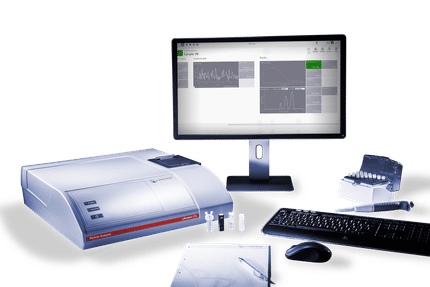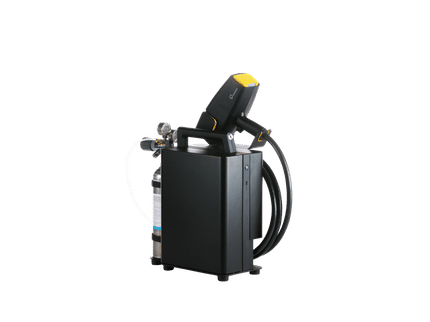To use all functions of this page, please activate cookies in your browser.
my.chemeurope.com
With an accout for my.chemeurope.com you can always see everything at a glance – and you can configure your own website and individual newsletter.
- My watch list
- My saved searches
- My saved topics
- My newsletter
Prolyl isomeraseProlyl isomerase (also PPIase) is an enzyme found in both prokaryotes and eukaryotes that interconverts the cis and trans isomers of peptide bonds with the amino acid proline. Proline has an unusually conformationally restrained peptide bond due to its cyclic structure with its side chain bonded to its secondary amine nitrogen. Most amino acids have a strong energetic preference for the trans peptide bond conformation due to steric hindrance, but proline's unusual structure stabilizes the cis form so that both isomers are populated under biologically relevant conditions. Proteins with prolyl isomerase activity include cyclophilin, FKBPs, and parvulin, although larger proteins can also contain prolyl isomerase domains. Product highlight
Protein foldingThe process of cis-trans isomerization is often the rate-limiting step in the process of protein folding. Prolyl isomerases therefore function as protein folding chaperones. Cis peptide bonds before proline residues are often located at the first residue of certain types of tight turns in the protein backbone. Proteins that contain structural cis-prolines in the native state include ribonuclease A, ribonuclease T1, beta lactamase, and some interleukins. Prolyl isomerase folding can be autocatalytic and therefore the speed of folding depends on reactant concentration. Parvulin and human cytosolic FKBP are thought to catalyze their own folding processes. Evidence for proline isomerizationMethods for identifying the presence of a rate-limiting proline isomerization process in a protein folding event include:
It is important to note that not every proline peptide bond is critical to the structure or function of a protein, and not every such bond has a significant influence on folding kinetics, especially trans bonds. Furthermore, some prolyl isomerases have a degree of sequence specificity and therefore may not catalyze the isomerization of prolines in certain sequence contexts. Assays for prolyl isomerase activityProlyl isomerase activity was first discovered using a chymotrypsin-based assay. The proteolytic enzyme chymotrypsin has a very high substrate specificity for the four-residue peptide Ala-Ala-Pro-Phe only when the proline peptide bond is in the trans state. Adding chymotrypsin to a solution containing a reporter peptide with this sequence results in the rapid cleavage of about 90% of the peptides, while those peptides with cis proline bonds - about 10% in aqueous solution - are cleaved at a rate limited by uncatalyzed proline isomerization. The addition of a potential prolyl isomerase will accelerate this latter reaction phase if it has true prolyl isomerase activity. References
|
|||
| This article is licensed under the GNU Free Documentation License. It uses material from the Wikipedia article "Prolyl_isomerase". A list of authors is available in Wikipedia. |







